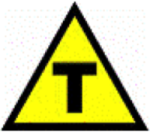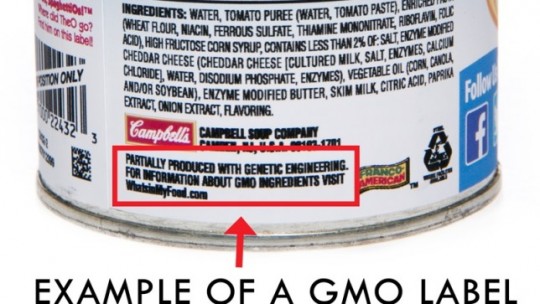
Big Corn, Big Lies
- Big Corn releases new study full of labelling and cost exaggerations
- GMO labelling will allegedly cost American families $1,050 annually, but one proactive company proves this to be wrong
- The DARK Act is back! Do your part to stop it!
Dear Reader,
Big Corn is back at it…
But this time they aren’t just filling our food supply with garbage food — they are now filling our news streams with garbage science.
What’s even more frightening…
The Dark Act is back in the Senate. If Big Corn gets their way and the act passes, our food supply will continue to be an endless stream of unlabeled GMO products.
But this doesn’t have to be the case. You have the power to stand up to Big Corn’s agenda.
Below I explain the lies… and what you can do about it.
![]() A Garbage Study
A Garbage Study
A new study funded by Big Corn — the same folks who call high fructose corn syrup natural — claims labelling food containing GMO ingredients will cost the foods industry a shocking $81.9 billion.1
In fact, Big Corn goes on to report that when Vermont’s new GMO labelling law goes into effect on July 1, it will cost each American family an additional $1,050 annually and increase average national food prices by 1.76 percent in the first year.1
But what Big Corn doesn’t tout as loudly is the flaws in their study.
Let me explain…
This “study” makes grandiose assumptions about how the food industry will react to the new GMO labelling law.
Instead of calculating the minute costs of adding new text to food packaging, Big Corn hypothesizes that all food makers, regardless of their sales territories or location, will instead reformulate their products using non-GMO ingredients so they can sell them as non-GMO foods in Vermont.
These reformulation costs are how the corn industry came to the inflated conclusion that American families will lose $1,050 from their budgets in coming years.
One American food giant has already debunked this bloated figure. We will explore how they did this in a bit.
First, let’s take a closer look at the inflated claims Big Corn is making about GMO labelling.
![]() The Big Corn Way: Labelling Lies as Facts
The Big Corn Way: Labelling Lies as Facts
The authors of the study claim this reformulation is due to consumers being less likely to purchase a product containing GMO ingredients.
However, there is research to combat Big Corn’s ridiculous claim.
A recent study by two U.S. Department of Agriculture economists shows that food choices at the grocery store are just as impulsive in countries requiring food labelling. It went on to report factors like price and calorie content were of more importance.2
Another study done by two agricultural economists found that the presence of GMO labels didn’t increase consumer apprehension toward GMO products. In fact, one of the key findings of the study was, “There was no consistent statistically significant difference in the average level of concern for GMOs expressed by people shown different labels. That is, the mere presence of the GMO label did not lead to a greater level of concern about GMOs.3
In addition to these American findings, Brazil’s GMO labelling policy provides interesting information. The “transgenic” symbol was added to Brazil’s GMO food packaging 15 years ago (2001), yet studies find that consumers are more apt to buy foods in packaging containing this label than those that do not contain the label, particularly if they make nutritional claims. 4

Brazil’s transgenic symbol Photo credit: www.loc.gov
Big Corn goes on to claim that many food producers will opt to make two versions of their products — one that contains GMO ingredients and a non-GMO ingredient version. This two-version production model is also a factor in their outrageous $81.9 billion estimate.
However, Vermont’s law only requires GMO products to have a label, not to make changes to ingredients.
And as we have recently seen with Campbell’s Soup, multiple products are a very unlikely reality.
Campbell’s has not reformulated all of their products. Instead, they now indicate which products contain GMO ingredients.

Campbell’s Soup GMO labelling
Photo Credit: abcnews.go.com
And according to company spokesman Tom Hushen, Campbell’s decision to label has made no difference in cost to the consumer. He explains:
“To be clear, there will be no price increase as a result of Vermont or national GMO labeling for Campbell products.”5
So there you have it. Campbell’s has proven there is no $81.9 billion problem. They are proactively labelling GMO products, and yet there is no price increase for the consumer.
While Campbell’s is certainly a trailblazer in the food industry, unfortunately, they still don’t see GMO products as harmful. Hushen went on to report, “We still believe GMOs are safe and we continue to believe that they play an important role in feeding the world.”
While Campbell’s opinions about GMOs may differ from those of the Living Well team, we can still applaud them for their transparency about their ingredients and consumer costs, even if these actions are the result of consumer demand.
If food ingredients are of importance to you, oppose the Senate version of the “DARK” (Deny Americans the Right to Know Act) Act NOW!
The DARK Act will:
- Pre-empt states from requiring GMO labelling
- Make voluntary labelling of GMO products more difficult for companies like Campbell’s
- Remove the FDA’s jurisdiction over GMO disclosures.
If you would like to oppose the Dark Act, you can call your senators at the U.S. Capitol switchboard (202) 224-3121. Let them know you oppose the DARK Act and support GMO labelling!
You can also use the form at Environmental Working Group. They are a non-profit, non-partisan organization dedicated to protecting human health and the environment. Click here to access the form.
If you have any comments about GMO labelling or the DARK Act, drop me a line! Nmoore@lfb.org
Live well,

Natalie Moore
Managing editor, Living Well Daily
Sources
[1] Cost Impact of Vermont’s GMO Labeling Law on Consumers Nationwide
[2] Corn Lobby’s GMO Labeling Study “Preposterous”
[3] Chapter 11 The Effect of GM Labeling Regime on Market Outcomes
[4] Brazilians Don’t Turn Up Their Noses At GE Food
[5] Campbell’s Decision to Label GMOs Destroys Monsanto’s Main Argument Against Labeling
Written By Natalie Moore
Natalie Moore is a dedicated health researcher with a passion for finding healthy, natural, and science-based solutions. After a decade of direct healthcare experience in western and natural medicine, she was involved in public health research before joining Living Well Daily.
View More Free Articles
The 5 Health Numbers Your Doctor Wishes You'd Track
Have you ever been told you should “advocate” for yourself when it comes to your healthcare and wondered what that really means? It’s not just a buzzword—it’s a powerful concept that empowers you to take charge of your own health journey. In fact, it could save your life. Being your own best health advocate starts...
Do THIS Every 20 Minutes to STOP Digital Eye Strain
Our eyes are under assault—they are the true victims of our current digital age. And it’s because we are constantly glued to screens… phones, tablets, computers, TVs—you name it. Unfortunately, that screen time is taking a serious toll. Digital eye strain affects millions worldwide. In fact, up to 50 percent of computer users could develop...
Mailbag: The Calcium Mistake That's Hardening Your Arteries
“What type of calcium is best to take with bisphosphonates for osteoporosis? I know some varieties can build up in arteries. Thanks for the help.” —Bone Builder Hi Builder, When a patient asks me about calcium, I ask them a peculiar question in return… “Ever wonder how elephants and giraffes build and maintain their massive...
Doctor-Approved Method to Ditch Blood Pressure Meds
In a world where drug solutions dominate healthcare, it’s refreshing to discover that best remedies sometimes don’t involve a single pill. A groundbreaking study shows simple relaxation techniques could be your secret weapon against one of America’s deadliest health conditions. Best of all? It’s free, easy to start right away—and your results are bound to...
Trouble Hearing? Your Heart Could Be at Risk
With research exploding and data pouring in, scientists are uncovering some weird (and surprisingly helpful) health connections. Today’s odd couple? Hearing loss and heart failure. Turns out your ears and your ticker are more connected than you ever imagined. A major study published in the journal Heart looked at over 164,000 people for nearly a...
Stay Up Late? It Could Destroy Your Mental Health
If you dread mornings but come alive at night, there’s concerning new research you need to know about. A recent study found that “night owls” are at higher risk for depression. But before you rush to set your alarm to get up with the sun tomorrow, there’s more to the story… Chronotypes are essentially your...
Go from Flabby to Fit with this Common Vitamin
If you’re like many of us, you woke up one day, looked in the mirror, and realized you’re no spring chicken anymore. Even worse—when you weren’t paying attention—it seems you somehow misplaced the muscles of your youth and have gone from fit to flabby. Aging has a way of humbling us like that. But scientists...
Seasonal Allergy “Off Switch” Discovered in the GUT
“Doc, why am I suddenly suffering from seasonal allergies when I’ve never had them before?” It’s a question I get all the time—and my answer might surprise you. Stop looking up at the trees—and start looking down at your gut… Your sneezing fits, itchy eyes, and runny nose might have more to do with what’s...
“Canary in the Coal Mine” Test Sniffs Out Brain Issues Early
One of the most common questions I get is how to tell if you’re starting to experience cognitive decline. I get it—losing your memory is scary, especially when it sneaks up on you. But here’s some exciting news that might put your mind at ease. A fascinating new study suggests that your nose might be...
BEAT Stubborn Leg Swelling Without Dangerous Diuretics
“I need help with edema.” —Swollen Hi Swollen, When patients complain of edema—fluid retention that causes feet, ankles, and legs to swell—I explain that, while conventional medicine immediately prescribes diuretic drugs, nature offers us effective solutions we can try first. I’ll share those in just a moment, but first, let’s take a quick look at...









